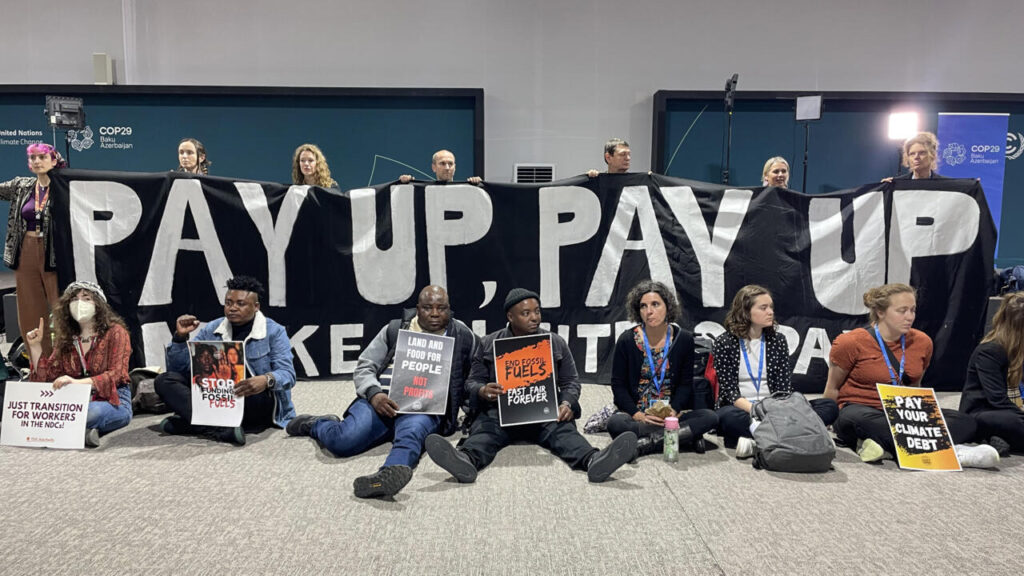During the climate discussions at COP29 in Baku, wealthy countries decided to increase their global financial offering to help developing nations face the climate crisis, thereby reaching 300 billion dollars per year. This gesture is the result of long overnight negotiations, marked by a willingness to find a compromise and avoid divergences. Nevertheless, the commitment remains below the expectations of emerging countries, who deem the proposal insufficient to make the necessary transition to a low-carbon economy.
During the climate negotiations at COP29 in Baku, major wealthy countries agreed to increase their financial offering to 300 billion dollars per year to help developing nations confront the climate crisis. This agreement results from a meeting organized by the Azerbaijani hosts with various ministers and heads of delegation, including those from China, the EU, Saudi Arabia, Brazil, the United Kingdom, the United States, and Australia, after the initial offer of 250 billion dollars was deemed insufficient by developing countries. However, this amount still falls short of the expectations of many nations that require a greater contribution from developed countries, preferably in the form of grants rather than loans.

cop29: the new financial commitment from wealthy countries
During the recent climate discussions in Baku, known as COP29, negotiations finally led to a crucial agreement. Indeed, wealthy countries have committed to increase their climate financing contribution to 300 billion dollars per year. This decision is the result of long negotiations between global representatives, where countries like China, the EU, and Brazil played pivotal roles. This new financial aid aims to assist developing nations in overcoming the challenges posed by climate change, particularly by reducing their dependence on fossil fuels.
The negotiations were strategically orchestrated by the Azerbaijani hosts, creating a dialogue space among delegation heads to devise practical solutions. This was all in the context of rising tensions related to the insufficiency of the initial commitment of 250 billion dollars. This concerted effort demonstrates the sense of urgency felt by the international community to confront the climate crisis. At the same time, discussions highlighted the need to mobilize not only public funds but also private sector investments to achieve the set ambitions.
the criticisms and expectations of developing countries
Despite this commitment, reactions are mixed among developing countries. Although the envelope of 300 billion dollars per year represents an improvement over the initial offer, it remains well below expectations. Many consider this figure insufficient to address climate realities and its changing dynamics. Developing countries aspire to more funding in the form of grants rather than loans, given their existing debts. They believe that current proposals, even if increased, do not suffice to cover the real costs of transitioning to low-carbon energy systems.
the challenge of energy transition and the pressure of commitments
One of the key points of discussion in Baku revolves around the shift from fossil fuels to renewable energies, especially in light of the ongoing efforts of certain nations to overturn previous commitments. With the opposition from a few countries, such as Saudi Arabia, that want to remove the reference to this transition, pressure remains high on negotiators to reach a solid consensus. It is inevitable that any new agreement must not only address immediate financial needs but also establish sustainable long-term strategies to encourage the global adoption of renewable energies.
Furthermore, growing calls are being made during COP29 to establish coherent global targets for the deployment of electric grids and renewable installations. These efforts are supported by the arguments of economists, who believe that investing in such infrastructures is vital to achieving the climate goals set. It is therefore not only a question of money but also a strategic vision for asustainable future.
Articles similaires
Thank you!
We will contact you soon.














